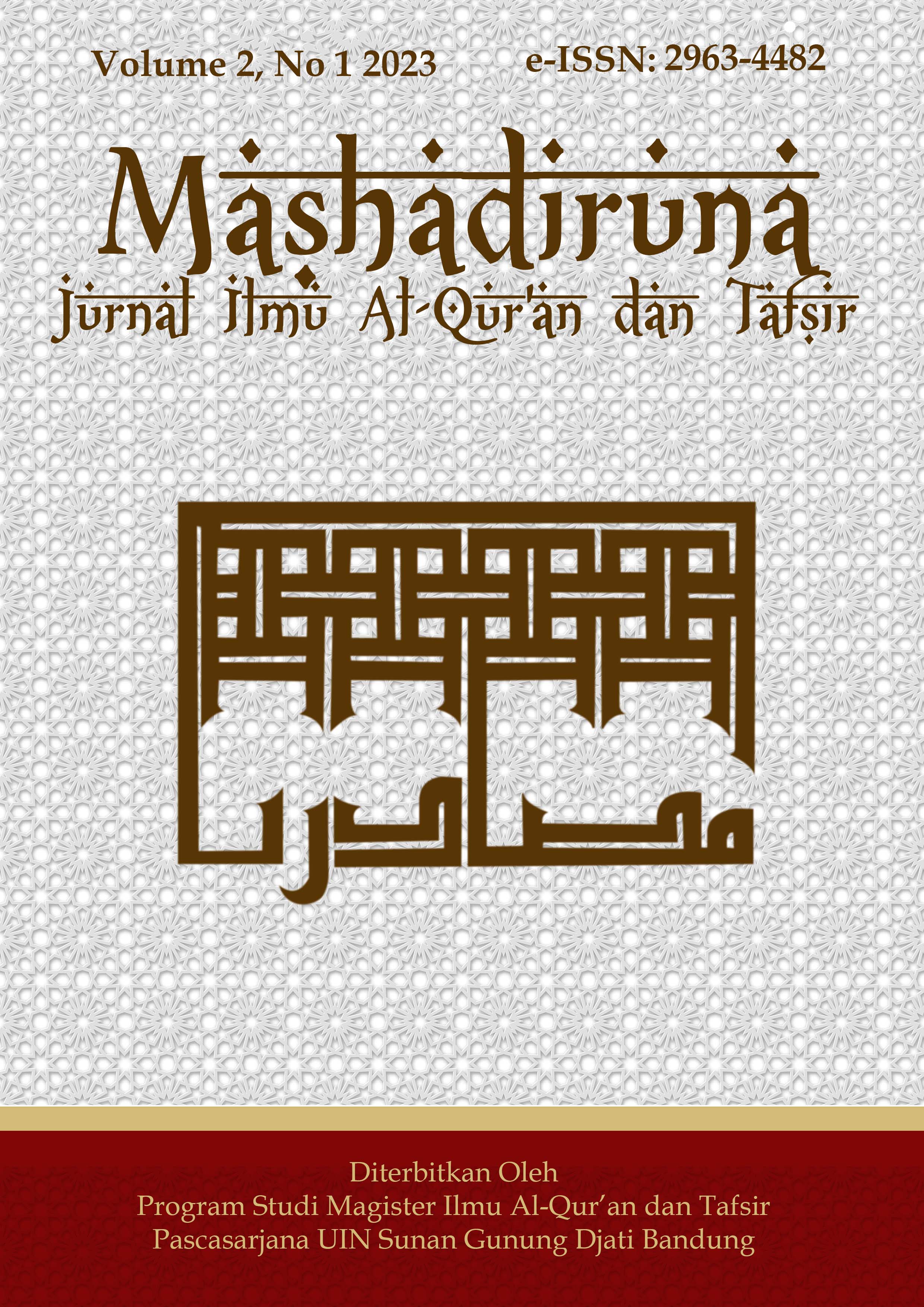Wahbah Zuhaili's Understanding of the Verses on Adultery: A Review of Al-Tafsir Al-Munir
DOI:
https://doi.org/10.15575/mjiat.v2i2.25242Keywords:
Zina, Wahbah Zuhaili, Tafsir al-Munir.Abstract
Adultery has recently become a major problem faced by mankind, especially whether it is prostitution or abnormal-sex considering that this ugliness is among the oldest on earth, this crime is very difficult to deal with and even trying to reduce it is very difficult. This is made clear by the reading of the text of the Qur'an by the mufasir, so that in this study it is hoped that it will be able to trigger Wahbah Zuhaili's best interpretation of zina and its relevance to the Criminal Code in Indonesia. This research uses qualitative research methods, namely research that contains written data such as documents or other texts that are relevant to the topic of discussion, this written data is usually in the form of words or actions and not in the form of numbers (numeric). The collection of sources in this research was obtained by means of library research or book surveys. In this technique, there are three stages that must be done. First, inventorying the verses on adultery. Second, read, browse, and compile interpretations of wAhbzh zuhaili. Third, describe and analyze the interpretation of these adultery verses, so that comprehensive and holistic research findings or results can be obtained.
References
Al-Qaradawi, Y. (1998). Islam: The Future Civilization. iiitbd.org. http://www.iiitbd.org/wp-content/uploads/2017/10/Islam-The-Future-Civilization_Dr-Yusuf-Al-Qaradawi.pdf
Al-Zamakhshari, M. (1998). Tafsir al-Kashshaf ‘an Haqaiq Ghawamid al-Tanzil. Dar al-Kitab al-Arabi.
Al-Zuhaili, W. (2009). Al-Tafsiru al-Muniru fi al-‘Aqidati wa al-Syari’ati wa al-Manhaj. Damaskus: Daru al-Fikri al-Muashir.
Ali, A., & Muhdlor, A. Z. (1996). Kamus Kontemporer. Yayasan Ali Maksum.
Ali, Z. (2014). Metode Penelitian Hukum. Sinar Grafika.
Amin, G. S. (2008). Profil Para Mufasir Al-Qur’an. Yogyakarta: Pustaka Insan Madani.
Az-Zuhaili, W. (2013). Tafsir Al-Munir Jilid 1 eds. Terj. Abdul Hayyie Al-Kattani dkk. Gema Insani.
Hasab, ‘Adnan Khalil Muhammad. (2019). AyÄt al-AhkÄm DirÄsah MuqÄranah bain TafsÄ«r AhkÄm Al-QurÄn li al-ImÄm al-Jaṣṣaá¹£ wa AhkÄm Al-QurÄn li al-ImÄm Ibn al-‘Arabi min KhilÄl al-Juz’ al-SÄdis ‘Asyar. Jami’ah Umm al-Durman al-Islamiyah.
Izzan, A., & Tamimi, T. M. (2022). The Concept of Dhikr in the Quran and its Relation to Mental health (Analysis Study of Surah Ar-Ra’d Verse 28). Mashadiruna: Jurnal Ilmu Al-Qur’an Dan Tafsir, 1(1), 25–32.
Moleong, L. J. (2007). Metodologi Penelitian Kualitatif. PT Remaja Rosdakarya.
Mustaqim, A. (2015). Metode Penelitian Al-Qur’an dan Tafsir (2nd ed.). Idea Press.
Rahayu, L. (2010). Makna Qaulan dalam al-Qur’an; Tinjauan Tafsir Tematik Menurut Wahbah al-ZuhailÄ«â€. UIN SUSKSA Riau.
Ramadayanto, A., Darmawan, D., & Taufiq, W. (2021). Nilai Nilai Akhlaqul Karimah Dalam Surah Al Fatihah. Jurnal Iman Dan Spiritualitas, 1(3), 297–310.
Setiadi, E. (2019). STUDI KOMPARATIF TENTANG ZINA DALAM HUKUM INDONESIA DAN HUKUM TURKI. UNISBA, XIII(3 November).
Shafiyyurahman, S. A.-M. (1997). Sirah Nabawiyah. Pustaka Alkautsar.
Wallace-Murphy, T. (2012). What Islam Did For Us: Understanding Islam’s Contribution to Western Civilization. Watkins Media Limited.
Wojowasito, S. (1992). Kamus Umum Belanda Indonesiaâ€. Ichtiar Baru Van Hoeve.
Downloads
Published
Issue
Section
License
Authors who publish with this journal agree to the following terms:
- Authors retain copyright and grant the journal right of first publication with the work simultaneously licensed under a Creative Commons Attribution License that allows others to share the work with an acknowledgment of the work's authorship and initial publication in this journal.
- Authors are able to enter into separate, additional contractual arrangements for the non-exclusive distribution of the journal's published version of the work (e.g., post it to an institutional repository or publish it in a book), with an acknowledgment of its initial publication in this journal.
- Authors are permitted and encouraged to post their work online (e.g., in institutional repositories or on their website) prior to and during the submission process, as it can lead to productive exchanges, as well as earlier and greater citation of published work (See The Effect of Open Access).
